
In early 2023, Cheops satellite will observe two exoplanets, KELT-3b and TOI-560c. By joining a Hack an Exoplanet event, teams of secondary students will have the opportunity to analyse the real satellite data collected by Cheops and hack these mysterious alien worlds. This activity is targeted at teams of students aged 14 to 19 years old.
A hackathon event is expected to last about 3 hours and it should be accessible to all students. As extra support, we provide classroom activities that you can complete with the student teams beforehand in preparation to the hackathon event.
Online and physical hackathons will be organised in April and May 2023, and you can even host your own hackathon in your school! The hackathon activities developed with the support of ESA experts will be made freely available on this platform in multiple languages on 3 April 2023.
Anyone is welcome to organise or join an Hack an Exoplanet activity. Find out below how you can join or host an event.
Events will be organised virtually and physically across Europe during April and May 2023.
Find out if there are any physical activities nearby on the map, or join a virtual event. You can also host your own Hack an Exoplanet event (see more information below).
All the activities will also be freely available on the platform. You can chose to organise a classroom hackathon instead of joining a larger event.
Choose an event
Are you a teacher and would like to get involved in this initiative? Start by consulting the list of Hack an Exoplanet events in the map above or follow this link. The events can be physical or virtual. Stay tuned for new events, this list will be constantly updated.
If there isn’t an event near you, you can host your own event, join a virtual event or organise a classroom hackathon instead of joining a larger event. All the materials necessary will be made available on the platform in the beginning of April 2023.
You can also contact your national contact point for more information.
ESA will have a live transmission of the hackathon on the 18 April 2023, from 14h to 17h CET.
Prepare for the event
Inspire teams to join the hackathon using the classroom resources, videos and quiz available on this platform, or by asking a scientist a question. You can complete these activities with the students beforehand in preparation to the hackathon event.
Create an account on the platform. You will receive important updates about Cheops observations and project developments, be able to register your event and much more.
If you have questions and would like more information about the exoplanets and content of the challenges, join the information session for hackathon hosts on 3 April 2023 at 14h CET. We will go through all the materials with you and make sure that you have all the information necessary to organise a hack an exoplanet event.
If your country is a local organiser you can contact them for extra support.
Hack an exoplanet!
This is the big day!
The hackathon challenges consist of inspirational problems that use real satellite data on two exoplanets, observed by Cheops specifically for this event.
A hackathon event is expected to last about 3 hours and it should be accessible to all students.
The hackathon is divided in two parts. In the first part we will use data on the first exoplanet as a guided example. In the second part students will have to analyse data on the second exoplanet in an autonomous way. After the hackathon, teams are invited to submit their projects on this platform to receive a participation certificate and apply for the best project prize.
Learning objectives of the event:
Submit the projects
Support the teams that would like to take their participation further by showcasing their project in the Hack an Exoplanet platform. All teams that submit a project will receive a participation certificate.
Teams can submit their projects to the platform until 14 June 2023.
All submitted projects will also compete for the Best Project Prize. A jury composed of ESA, and Cheops experts will select the best projects based on the quality of their analysis and report submitted. The winning teams will receive ESA goodies and the unique opportunity to participate in a live webinar with Nobel Prize Laureate Didier Queloz in July 2023.
Are you a teacher and would like to get involved in this initiative? Start by consulting the list of Hack an Exoplanet events in the map above or follow this link. The events can be physical or virtual. Stay tuned for new events, this list will be constantly updated.
If there isn’t an event near you, you can host your own event, join a virtual event or organise a classroom hackathon instead of joining a larger event. All the materials necessary will be made available on the platform in the beginning of April 2023.
You can also contact your national contact point for more information.
ESA will have a live transmission of the hackathon on the 18 April 2023, from 14h to 17h CET.
Inspire teams to join the hackathon using the classroom resources, videos and quiz available on this platform, or by asking a scientist a question. You can complete these activities with the students beforehand in preparation to the hackathon event.
Create an account on the platform. You will receive important updates about Cheops observations and project developments, be able to register your event and much more.
If you have questions and would like more information about the exoplanets and content of the challenges, join the information session for hackathon hosts on 3 April 2023 at 14h CET. We will go through all the materials with you and make sure that you have all the information necessary to organise a hack an exoplanet event.
If your country is a local organiser you can contact them for extra support.
This is the big day!
The hackathon challenges consist of inspirational problems that use real satellite data on two exoplanets, observed by Cheops specifically for this event.
A hackathon event is expected to last about 3 hours and it should be accessible to all students.
The hackathon is divided in two parts. In the first part we will use data on the first exoplanet as a guided example. In the second part students will have to analyse data on the second exoplanet in an autonomous way. After the hackathon, teams are invited to submit their projects on this platform to receive a participation certificate and apply for the best project prize.
Learning objectives of the event:
Support the teams that would like to take their participation further by showcasing their project in the Hack an Exoplanet platform. All teams that submit a project will receive a participation certificate.
Teams can submit their projects to the platform until 14 June 2023.
All submitted projects will also compete for the Best Project Prize. A jury composed of ESA, and Cheops experts will select the best projects based on the quality of their analysis and report submitted. The winning teams will receive ESA goodies and the unique opportunity to participate in a live webinar with Nobel Prize Laureate Didier Queloz in July 2023.
Would your school or educational organisation like to host a virtual or physical Hack an Exoplanet event?
Sign up as a hack an exoplanet hackathon event using the form below and we’ll keep you updated with the latest news and support available from ESA and our exoplanet experts.
Involve your school
Are you a teacher and would like to get involved in this initiative? Start by getting your school or organisation aware of this event.
Note: if you would like to organise a physical hackathon, make sure you have an adequate space for the teams to prepare and develop their projects. Including access to computers and internet.
Set a date
Set a date that is convenient for your students and school community. We suggest a date between April and May 2023.
All the materials you will need to organise the hackathon will be available on the platform in early April.
ESA will have a live transmission of the hackathon on the 18 April 2023, from 14h to 17h CET.
Prepare for the event
Inspire the teams to join the hackathon using the classroom resources, videos and quiz available in this platform, or by asking a question to a scientist. You can complete these activities with the students beforehand in preparation to the hackathon event.
Create an account on the platform! You will receive important updates about the Cheops observations and developments on the project, be able to register your event and much more.
If you would like to ask questions and have more information about the exoplanets and content of the challenges, join the information session for hackathon hosts on the 3 April 14h CET. We will go through all the materials with you and make sure that you have all the information necessary to organise an hack an exoplanet event.
If your country has a local organiser you can contact them for extra support.
Hack an exoplanet!
This is the big day!
The hackathon challenges consist of inspirational problems that use real satellite data of two exoplanets, observed by Cheops specifically for this event.
A hackathon event is expected to last about 3 hours and it should be accessible to all students.
The hackathon is divided in two parts. In the first part we will use the data of the first exoplanet as a guided example. In the second part students will have to analyse the data of the second exoplanet in an autonomous way. After the hackathon teams are invited to submit their projects in this platform to receive a participation certificate and apply for the best project prize.
Learning objectives of the event:
Submit the projects
Support the teams that would like to take their participation further and showcase their project in the Hack an Exoplanet platform. All teams that submit a project will receive a participation certificate.
Teams can submit their projects to the platform until 14 June 2023.
All submitted projects will also compete to the Best Project Prize. A jury composed of ESA, and Cheops experts will select the best projects based on the quality of their analysis and report submitted. The winning teams will receive ESA goodies and the unique opportunity of participating in a live webinar with Nobel Prize Laureate Didier Queloz in July 2023.
Are you a teacher and would like to get involved in this initiative? Start by getting your school or organisation aware of this event.
Note: if you would like to organise a physical hackathon, make sure you have an adequate space for the teams to prepare and develop their projects. Including access to computers and internet.
Set a date that is convenient for your students and school community. We suggest a date between April and May 2023.
All the materials you will need to organise the hackathon will be available on the platform in early April.
ESA will have a live transmission of the hackathon on the 18 April 2023, from 14h to 17h CET.
Inspire the teams to join the hackathon using the classroom resources, videos and quiz available in this platform, or by asking a question to a scientist. You can complete these activities with the students beforehand in preparation to the hackathon event.
Create an account on the platform! You will receive important updates about the Cheops observations and developments on the project, be able to register your event and much more.
If you would like to ask questions and have more information about the exoplanets and content of the challenges, join the information session for hackathon hosts on the 3 April 14h CET. We will go through all the materials with you and make sure that you have all the information necessary to organise an hack an exoplanet event.
If your country has a local organiser you can contact them for extra support.
This is the big day!
The hackathon challenges consist of inspirational problems that use real satellite data of two exoplanets, observed by Cheops specifically for this event.
A hackathon event is expected to last about 3 hours and it should be accessible to all students.
The hackathon is divided in two parts. In the first part we will use the data of the first exoplanet as a guided example. In the second part students will have to analyse the data of the second exoplanet in an autonomous way. After the hackathon teams are invited to submit their projects in this platform to receive a participation certificate and apply for the best project prize.
Learning objectives of the event:
Support the teams that would like to take their participation further and showcase their project in the Hack an Exoplanet platform. All teams that submit a project will receive a participation certificate.
Teams can submit their projects to the platform until 14 June 2023.
All submitted projects will also compete to the Best Project Prize. A jury composed of ESA, and Cheops experts will select the best projects based on the quality of their analysis and report submitted. The winning teams will receive ESA goodies and the unique opportunity of participating in a live webinar with Nobel Prize Laureate Didier Queloz in July 2023.
Are you from Austria, Denmark, Greece, Norway, Portugal or Spain? Then your national European Space Education Resource Office (ESERO) is available to support you in this activity.
These national ESEROs will support you in the execution of your own hackathon at your school and some will be organising a hack an exoplanet event (virtual or physical) that you can participate in. More information about the events will be announced soon.
Find the contact information of the national ESERO offices associated with this activity below :
Austria
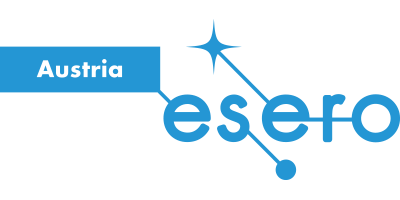
ESERO Austria
Ars-Electronica-Straße 1
4040 Linz
Austria
https://ars.electronica.art/esero/de/
esero@ars.electronica.art
Denmark
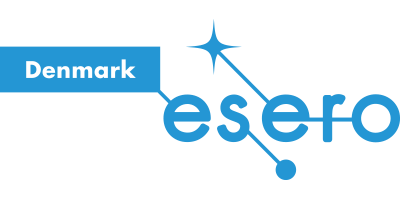
ESERO Denmark
P.E. Eriksens Vej 1,
8850 Bjerringbro,
Denmark
https://www.esero.dk
hbm@nvhus.dk
Greece
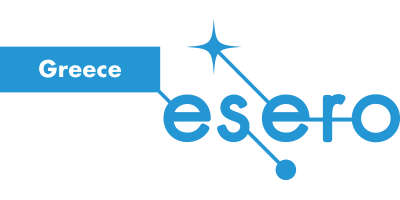
ESERO Greece
Balkan Center building B,
Thermi,
Greece
https://www.esero.gr
info@esero.gr
Norway
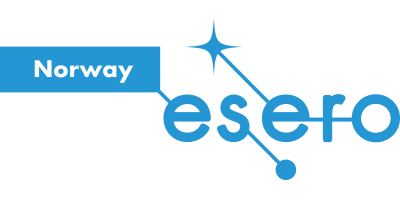
ESERO Norway
ESERO/Andøya Space Education
https://www.esero.no
post@esero.no
Portugal
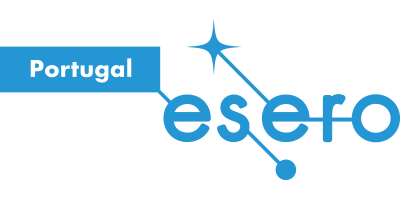
ESERO Portugal
Pavilhão do Conhecimento – Centro Ciência Viva
1990-073 Lisboa
Portugal
https://www.esero.pt
esero@cienciaviva.pt
Spain
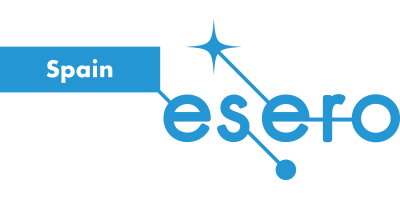
ESERO Spain
Parque de las Ciencias Av,
Ciencia s/n,
18006 Granada,
Spain
https://www.esero.es
info@esero.es